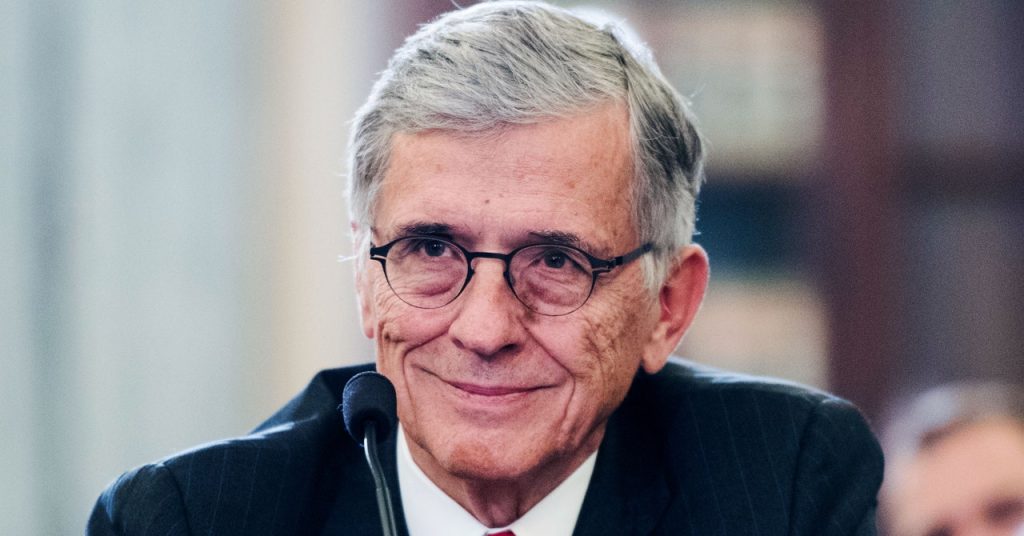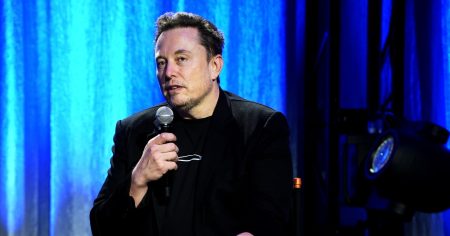When I first heard in 2013 that Barack Obama had chosen Tom Wheeler to head the crucial tech regulator that is the US Federal Communications Commission, my first thought was … what a sell-out! The new FCC boss had previously been head lobbyist for not one, but two industries: cable TV and cellular telecom. How could a Democratic president like Obama nominate the Big Bad Wolf to run the joint? My disappointment was tempered, however, when I spoke to my friend Susan Crawford, a tech policy expert with her heart in the public interest. “He’s a good man,” she told me. “Don’t worry.”
I told Wheeler about this when we recently discussed his new book, Techlash: Who Makes the Rules in the Digital Gilded Age. “You weren’t alone,” he says of my skepticism. “I hope that the proof of the pudding was in the eating.” Indeed, Crawford’s confidence was well placed. Once Wheeler took over, he displayed a bent for bucking the big communications and tech giants, and looking out for the people. He managed to get net neutrality rules passed. He went to Facebook’s headquarters and argued with Mark Zuckerberg about the company’s self-serving scheme to provide free data to India and other underserved countries. He came to despise the term “permissionless innovation,” which cast public-minded regulators like himself as nosy opponents of progress.
Even so, I was taken aback at the strident tone of Wheeler’s book, published this month. His core thesis is that, just as in the original Gilded Age in the 19th century, much of the populace are under the thumbs of ultra-rich industrialists who trash the public interest with monopolistic enterprises that line already-overstuffed pockets. Just as the government and courts eventually reined in the robber barons of railroads and steel, he writes, it’s time to embark on a long, tough fight to constrain the leading tech companies, whose grubby digital digits touch every aspect of our lives. Delivered with passion, the argument sometimes seems more Malcolm Harris than Newton Minow, who, during his own stint as FCC chair, declared in 1961 that TV was a “vast wasteland.”
When I note this to Wheeler, the former lobbyist hastens to say he’s not really arguing for revolution. “I’m a capital-C capitalist,” he says. “But capitalism works best when it operates inside guardrails. And in the digital environment, we’re existing in a world without guardrails.” Techlash goes deep on how regulators and legislators de-gilded the Gilded Age—“I am a frustrated history buff,” says Wheeler, who once wrote a book on Lincoln and the telegraph—and makes what is now a familiar case against Big Tech.
“The digital platforms collect, aggregate, and then manipulate personal data at marginal costs approaching zero,” he writes. “Then after hoarding the information, they turn around and charge what the market can bear to those who want to use that data … It is, indeed, the world’s greatest business model.” While the subtitle of his book is a question, the answer is obvious and depressing. “Thus far it is the innovators and their investors who make the rules,” he says. “At first this is good, but then they take on pseudo-government roles, and start infringing on the rights of others, and impairing the public interest.”
I only wish that Wheeler could offer realistic prescriptions for taming the Zuckerbergs as thoroughly as the trust-busters did the Rockefellers. The course of his own tenure at the FCC provides a cautionary tale. “I was responsible for overseeing the government’s largest licensing programs, for broadcasting on wireless satellites,” he says. “It is one of the most competition-throttling, innovation-crushing kind of situations, because they create government-guaranteed monopolies.” But as with many other things at the FCC—a poster child for regulatory capture—fixing the issue was out of the question. The special interests were too entrenched. And when former president Trump took over, Wheeler’s modest gains were reversed, with the net neutrality rules wiped out and the FCC once again acting as if it served big corporations, not the citizens paying for the agency.
Joe Biden now seems committed to building the guardrails Wheeler suggests. Under a new FCC chair, agency veteran Jessica Rosenworcel, the regulator is trying to resurrect the net neutrality rules. And Google is in court right now over antitrust charges, facing the accusation that it’s anticompetitive to maintain market dominance by paying billions to be the default search engine for Apple and Mozilla users. Meanwhile, Federal Trade Commission chair Lina Khan, a favorite of Wheeler’s, has been an active foe of overly powerful corporations, and recently filed a major antitrust suit against Amazon.
Is it working? Results are hard to discern. “There’s no oversight of the dominant digital platforms, and that’s the ultimate regulatory capture,” Wheeler says. He says that existing regulators have become so used to inaction that it’s time to create a vigorous new agency that could oversee digital giants, and be effective at regulating AI. But when Congress can’t even pass a privacy law that almost everyone—even Meta—agrees is much needed, it’s hard to imagine that dysfunctional body creating a new regulatory agency.
Read the full article here









